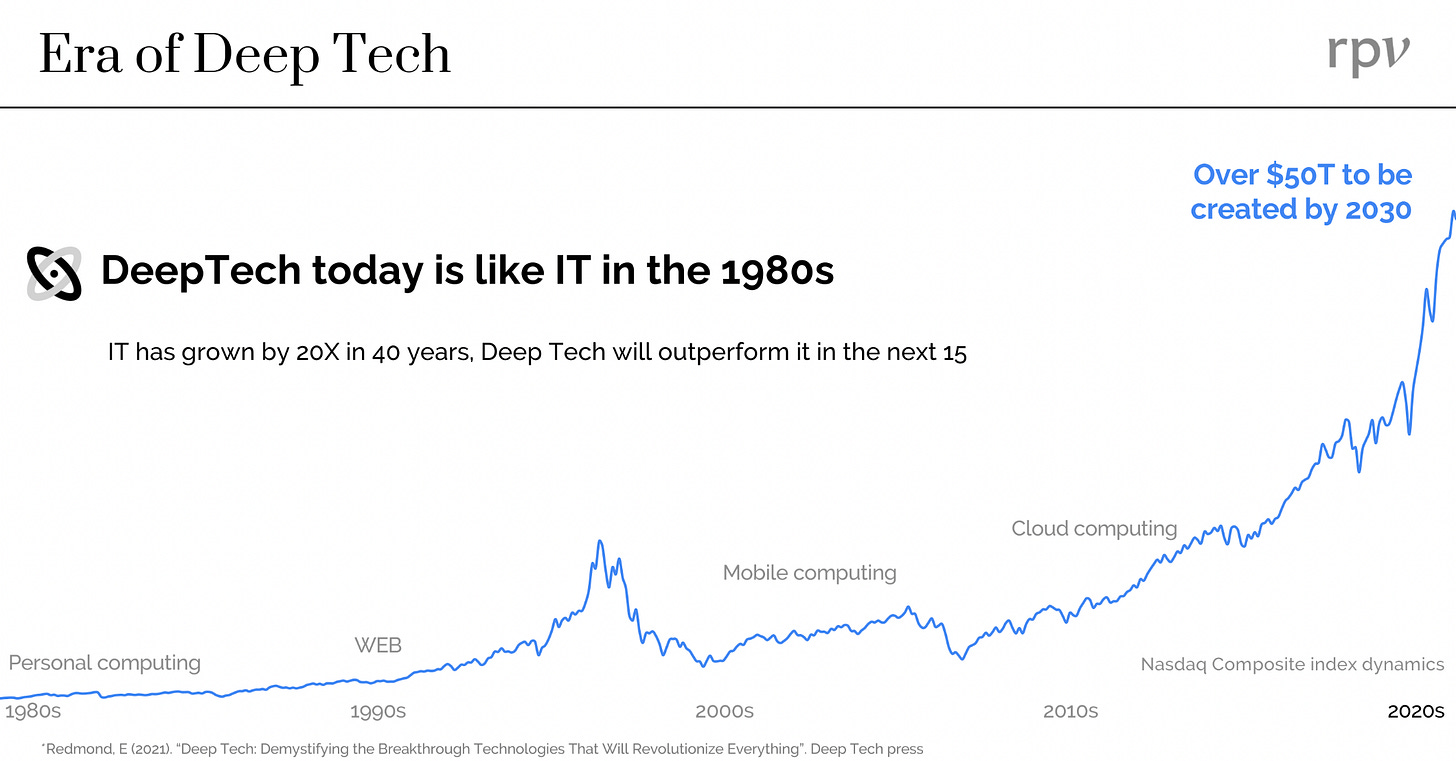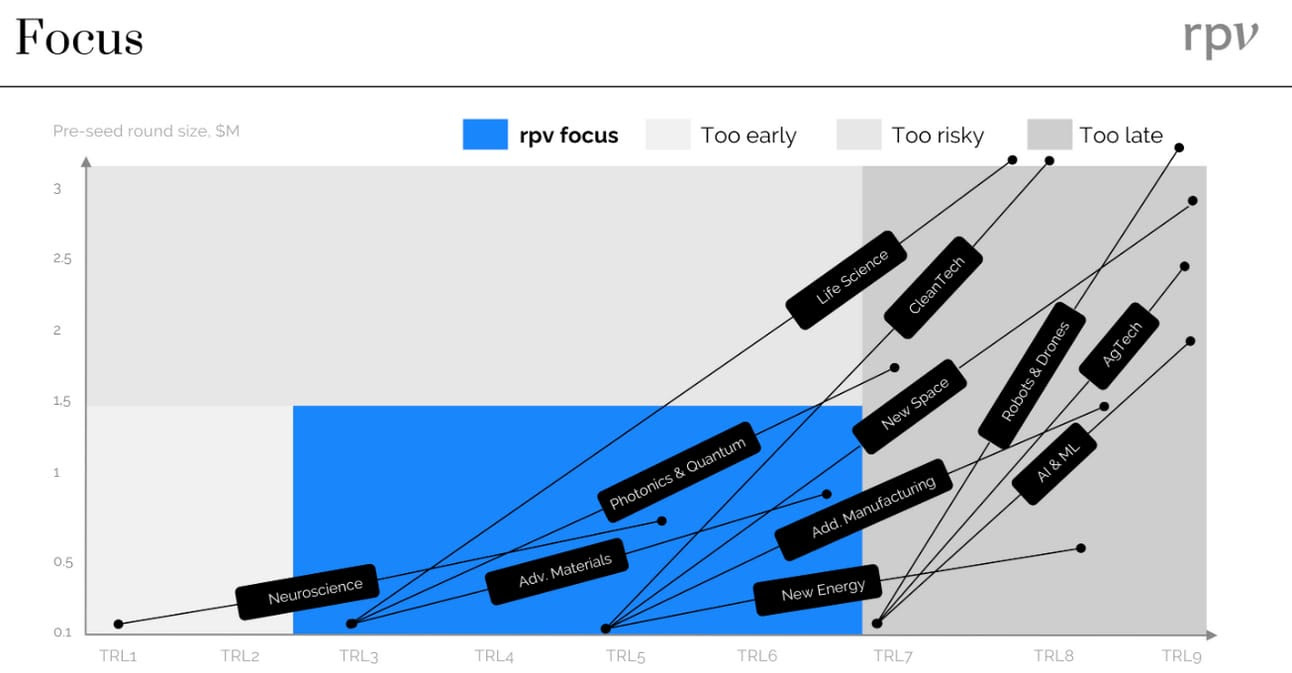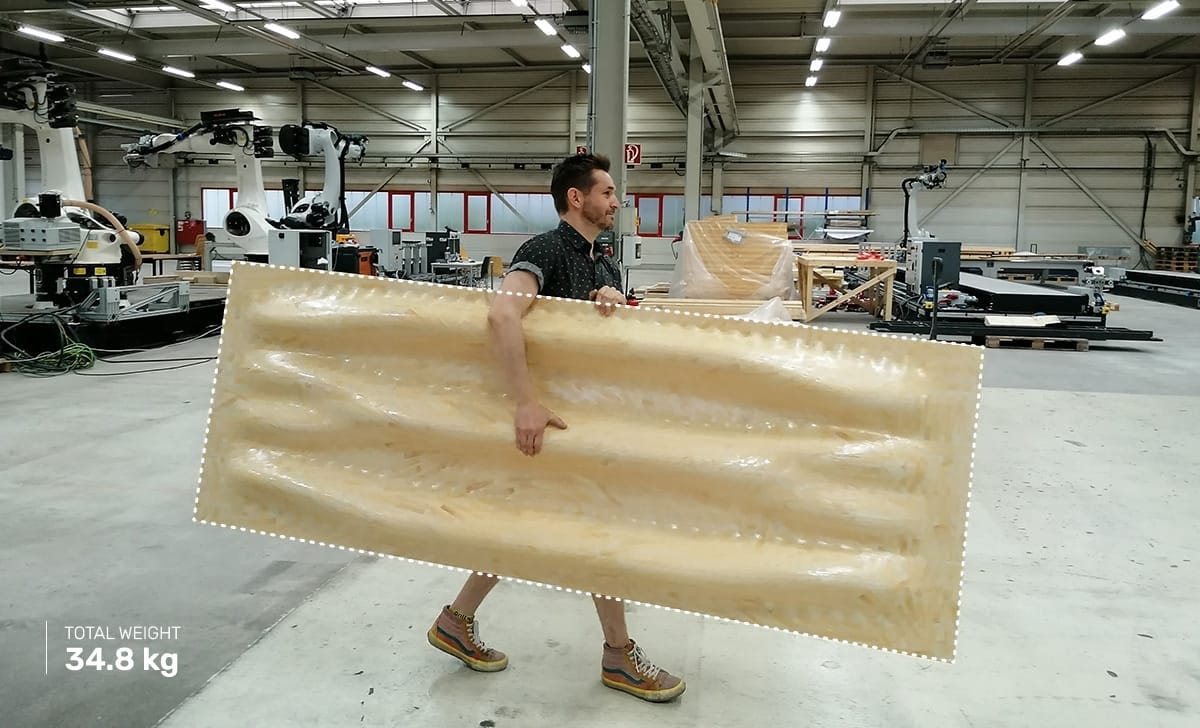Towards Science Fact
Introducing rpv global
The below was first published as a special edition by Unicorner, a newsletter covering ascendant startups and investors the world over.
What’s the most important problem in your field? Why aren’t you working on it? —Richard Hamming
The world is a malleable place. If you know what you want, and you go for it with maximum energy and passion, the world will often reconfigure itself around you much more quickly and easily than you would think. —Marc Andreessen
Here's to the crazy ones, the misfits, the rebels, the troublemakers, the round pegs in the square holes...They push the human race forward, and while some may see them as the crazy ones, we see genius, because the people who are crazy enough to think that they can change the world, are the ones who do. —Steve Jobs
Above: Shooting for the moon and landing among the stars.
From Silicon Valley to Sao Paulo, entrepreneurs, investors, operators, and optimists utter common laments.
Though these sentiments take many different forms—they span many languages and dialects—two quotes in particular are representative:
We wanted flying cars, instead we got 140 characters. —Peter Thiel
The best minds of my generation are thinking about how to make people click ads. —Jeff Hammerbacher
Thiel and Hammerbacher’s points are well-taken.
For all of Silicon Valley’s grandiose talk about the future of humanity, it has mostly delivered spectacularly useless, lifeless, even anti-human technologies. The “app store” and its myriad digital cousins teem more with so-so technologies than technological leaps forward.
In a way, this status quo reflects its owners perfectly.
The same people lend one another money, back and forth, in repackaged pursuit of their utmost whims— namely, to be served by strangers promptly, to have their cake and eat it too, and to amass more wealth even as they sleep.
rpv rejects such an insular, pessimistic-driven approach and instead pursues that which is propelled by genius, innovation, and exploration.
As a deep tech venture fund focused on early stage, scientifically-intensive venture, rpv seeks to advance humanity’s well-being in a broad, tangible manner.
Guided by the dual pillars of rigorous scientific method and strong ethical standards, rpv rejects a future dictated by incrementalism. Instead, it strives to usher in a golden era of, by, and for deep tech by applying the scientific method to seed stage investing.
Above: rpv believes that the era of Deep Tech is here and now.
Its diligence process is as scientific (if not more so) as the technology in which it invests. Both regimented and scientific, it stands apart—a far cry from freewheeling VCs that ready-fire-aim rather than ready-aim-fire.
Its methodological weapon of choice is a sniper rifle, not a bazooka.
Above: rpv's investment focus resembles photonics: both precise and powerful.
rpv funds and furthers breakthrough innovation across five specific physics-enabled areas:
Neuroscience
Lasers and photonics
Alternative energy
Advanced materials
Additive manufacturing, such as CAD/3D printing
The firm shoots not just for the moon, but also other distant, unfamiliar terrain—the subconscious, the depths of meaning, and the boundaries of physics and chemistry.
In place of facile, unseemly invocations of disruption and futurism, rpv’s team grits their teeth, rolls up their sleeves, and does the damn work. They reject sophistry and believe in science.
Ironically, this is rare.
Scientific expertise is severely lacking in the world of Deep Tech VC: only 19% of funds can evaluate a venture's scientific potential and its associated risks.
Above: An investment process befitting a deep tech fund: scientific and structured.
rpv works closely with CERN researchers and renowned scientists to diligence frontier deep tech in neuroscience, photonics, and new energy. It aims to write the first check into truly scientific startups and help accelerate broader VC interest.
Because the team is more at home in the laboratory or classroom than the boardroom, they have an unfair advantage that biases them toward victory.
rpv is led by Arkady Kulik and Tamaz Khunjua. Previously, Arkady served as COO of VK.com (2019-2021) and founded Thankyou, the largest digital music label in Russia. Tamaz is a CERN affiliate and drove the relationship between CERN and the University of Georgia (Tbilisi), where he is a tenured professor.
Together, they make a formidable duo united by complementary talents and unmatched intensity.
History shows that such duos can combine to create leaping emergent effects—think Bill Gates and Paul Allen, Larry Page and Sergey Brin, Steve Jobs and Steve Wozniak.
Though there exist lots of naysayers, neither incredulity nor pessimism halts technological advancement. There are some who duel in the arena and others who jeer from the peanut gallery.
Far from shelling nuts, Arkady and Tamaz realize that “there is no effort without error and shortcoming” and “strive to do the deeds…know great enthusiasms…spend [themselves] in a worthy cause.”
Showing beats telling. As an example, take one of the few rpv portfolio companies out of stealth: Strong by Form.
Strong by Form strives to rid the construction industry of concrete, steel, and aluminum. Inspired by nature, the company creates lightweight structural solutions that fuse the sustainability of wood with the performance and productivity of advanced composites. The resulting material weighs 12x less than concrete and is just as durable.
As I said, the stuff of science fiction.
rpv is putting its money where its mouth is and working tirelessly to turn science fiction into fact.
All this might sound a bit absurd. That’s because it is.
Andreessen Horowitz’s Katherine Boyle said it best:
[M]uch of the venture capitalist’s career will be dotted with the feeling of being absurd, being wrong, and hopelessly out of touch with reality. The future may be just over the horizon or 100 years away, and in a long enough timescale, you will likely be vindicated for many beliefs.
Venture capital is a job where the inevitability of looking and feeling absurd is a large part of the point of it. Your wins will look like losses. Your losses will look like incredible wins. Nothing will be as it appears and you will often be alone with these feelings of uncertainty. Most people hate the feeling of uncertainty and shy away from potential failure. Successful venture capitalists are often wrong about many things, and somehow, the failure allows for recalibration and learning.
If rpv achieves half of what I think it can, I don’t mind feeling absurd for years to come.1
Per my about page, White Noise is a work of experimentation. I view it as a sort of thinking aloud, a stress testing of my nascent ideas. Through it, I hope to sharpen my opinions against the whetstone of other people’s feedback, commentary, and input.
If you want to discuss any of the ideas or musings mentioned above or have any books, papers, or links that you think would be interesting to share on a future edition of White Noise, please reach out to me by replying to this email or following me on Twitter.
With sincere gratitude,
Tom
Disclaimer: I am an advisor to rpv.







